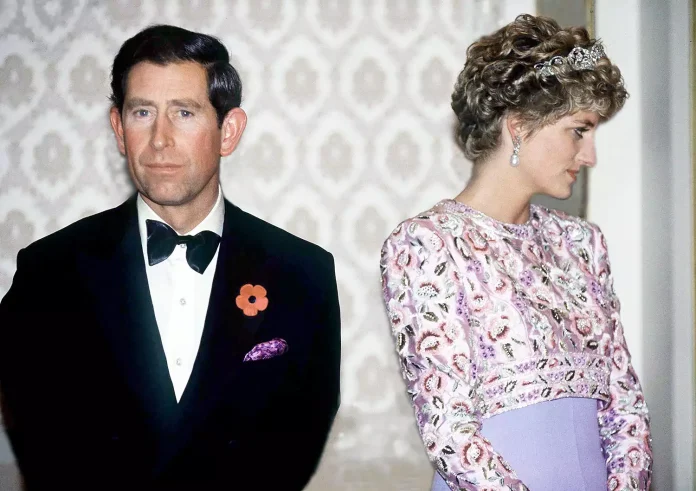The night before their fairytale wedding, Prince Charles (now King Charles III) dealt Princess Diana a “devastating” blow.
Penny Thornton, an astrologer Diana consulted, spoke out about the bombshell claim in ITV’s 2020 documentary The Diana Interview: Revenge of a Princess, 25 years after her famous interview on BBC’s Panorama.
“One of the most shocking things that Diana told me was that the night before the wedding, Charles told her that he didn’t love her,” Thornton said. “I think Charles didn’t want to go into the wedding on a false premise. He wanted to square it with her, and it was devastating for Diana.”
Thornton added, “She didn’t want to go through with the wedding at that point; she thought about not attending the wedding.”
During her 1995 BBC interview with reporter Martin Bashir, Diana revealed that both she and Charles were involved in affairs during their marriage. Charles resumed a relationship with ex-girlfriend (and current wife) Camilla Parker-Bowles, contributing to their separation in 1992.
When Bashir asked Diana if Camilla was a “factor” in the marriage’s breakdown, Diana replied: “Well, there were three of us in this marriage, so it was a bit crowded.”
The stunningly candid quote soon echoed around the world.
Diana also confirmed her relationship with British former cavalry officer James Hewitt. When Bashir asked if she was unfaithful to Charles, she said about Hewitt, “Yes, I adored him. Yes, I was in love with him.”
The ITV documentary alleges Bashir doctored bank statements to coerce Diana into speaking out. In November 2020, Diana’s brother Charles Spencer, the 9th Earl Spencer, publicly accused the BBC of sending him a “piecemeal apology” for the use of fake documents that were utilized to help secure the famous interview with his sister.
A 1996 BBC internal investigation claimed that the faked papers had “no bearing” on the interview. However, Spencer dismissed these findings and accused the network of “sheer dishonesty” over its conduct.
“[The BBC] has yet to apologize for what truly matters here: the severe falsification of bank statements suggesting that Diana’s closest confidants were spying on her for her enemies,” Spencer told PEOPLE exclusively.
“This was what led me to talk to Diana about such things. This, in turn, led to the meeting where I introduced Diana to Bashir on 19 September 1995. This then led to the interview,” he continued. “The BBC has so far refused to acknowledge the above. They claim Diana wasn’t misled. They have ignored my inquiry as to whether the apology over their false bank statements extends to the ones that actually persuaded Diana to meet Bashir.”
In response, the BBC reiterated that the organization had apologized to Spencer, telling PEOPLE, “The BBC has apologized. We are happy to repeat that apology. And while this was a quarter of a century ago, we absolutely will investigate — robustly and fairly — substantive new information. We have asked Earl Spencer to share further information with the BBC.
“Unfortunately, we are hampered at the moment by the simple fact that we cannot discuss any of this with Martin Bashir, as he is seriously unwell. When he is well, we will, of course, hold an investigation into these new issues.”
Diana’s close friend Rosa Monckton — who chose the princess as a godmother for her daughter — told the Daily Mail in November 2020 that the interview contributed to the royal’s untimely death.
Monckton wrote that the interview “dishonestly achieved, probably changed the course of history,” prompting Diana and Charles to begin divorce proceedings, “which meant that decisions about their future were made hurriedly, with long-term implications not thought through.”
“Among those decisions was the fact that Diana lost her royal title,” Diana’s friend said. “Had she retained it, she would have still been in the embrace of the Royal Family when in Paris on Aug. 31, 1997. And she would almost certainly not have been in the incapable hands of a speeding drunk driver employed by Mohamed Al-Fayed, who owned the Ritz Hotel where she and his son, Dodi, had dined.”
The car accident that killed Diana is believed to have been caused by paparazzi chasing the royal — but Monckton said the BBC is equally responsible.
“For the BBC, our national broadcasting corporation, to behave in this devious and underhand way is just as bad as any of the hunting pack of paparazzi,” she said.
In response to the Sunday Times story in October 2020, the BBC said Bashir is unwell and unable to respond.
“Questions surrounding Panorama’s interview with the Princess of Wales, particularly the ‘mocking-up’ of bank statements, were covered in the press at the time. BBC records from the period indicate that Martin had explained to the BBC that the documents had been shown to Earl Spencer and that they were not shown to the Princess of Wales.
“The BBC’s internal records from the time indicate that Martin had met the Princess of Wales before the mocked-up documentation existed. These accounts also say that the Princess of Wales confirmed in writing that these documents played no part in her decision to give [the interview].”
After the BBC announced that it would hold a “robust and independent investigation” in 2020, its findings were released in May 2021. Lord Dyson, the retired judge who led the inquiry, reportedly found that Bashir acted in a “deceitful” way and faked documents to obtain the interview. The report also added that the BBC’s internal probe in 1996 was “woefully ineffective.”
The BBC and Bashir have since apologized, with the BBC writing letters to Prince William, Prince Harry and their former nanny Tiggy Legge-Bourke, according to the Daily Mail.













